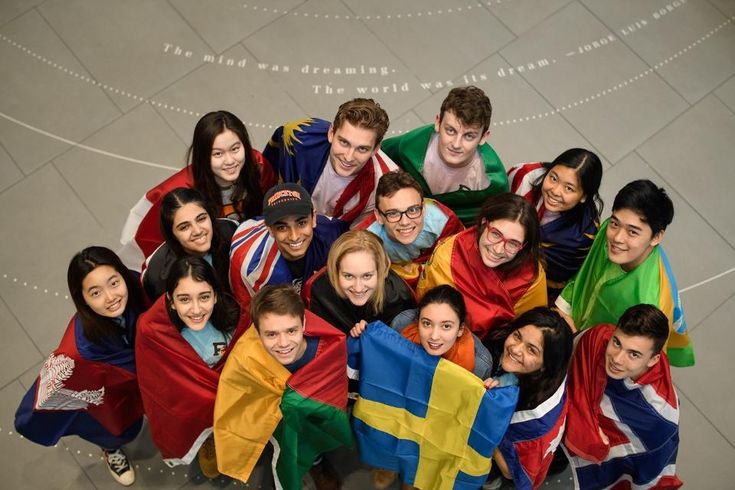Introduction
Studying abroad can be one of the most transformative experiences of your life. It pushes you beyond familiar boundaries, challenges your assumptions, and equips you with skills that extend far beyond the classroom. Whether you spend a semester in Europe, pursue a degree in Asia, or take vocational training in South America, you’ll return home with a deeper understanding of the world and yourself. In this article, we’ll uncover 5 powerful secrets that studying abroad teaches you—and how these lessons can supercharge your personal growth, employability, and global mindset.
Secret 1: Embracing Cultural Adaptability
Studying abroad thrusts you into a world of new languages, customs, and perspectives—forcing you to become comfortable with the unfamiliar. In doing so, you cultivate cultural adaptability, a skill that empowers you to thrive in diverse environments, whether you’re collaborating on a multinational project or navigating a foreign city’s subway system. Below, we explore in detail how living and learning in another country sharpens your ability to observe, adjust, and flourish wherever you go.
Answer Questions & Apply
Results
#1. What is your highest level of education?
#2. What is your current country of residence?
#3. What type of opportunity are you most interested in?
#4. Do you have a valid international passport?
#5. Do you have any work experience?
The Power of Observational Learning
One of the first lessons abroad is learning by watching. You tune into:
-
Communication Styles
Is small talk common, or do most people dive straight into business? Do colleagues prefer direct feedback or a more indirect approach? By observing daily interactions—at the café, the classroom, or the office—you build a mental library of dos and don’ts for each context. -
Social Norms & Etiquette
From greeting rituals (handshakes versus bows) to dining etiquette (fork-and-knife layouts or eating with chopsticks), these subtle cues guide you through unfamiliar social landscapes. Over time, you internalize them, reducing the likelihood of awkward faux pas. -
Conflict Resolution
Different cultures handle disagreements in distinct ways. In some societies, open debate is encouraged; in others, harmony and saving face take precedence. Identifying these patterns helps you choose the right tone when handling disputes, whether with roommates, classmates, or future colleagues.
Flexibility in Routine & Resilience
Routine disruptions are inevitable abroad. A sudden public holiday, an unexpected power outage, or a language barrier at the grocery store all demand on-the-spot adjustments. These experiences teach you to:
-
Plan for the Unplanned
You learn to build extra time into your schedule, have backup routes mapped out, and keep essential phrases on hand in case of emergencies. -
Stay Calm Under Pressure
When your bus is canceled or your translation app glitches, panicking won’t help. Instead, you draw on creative problem‑solving—like negotiating a shared taxi or enlisting a helpful stranger. -
Iterate Quickly
After each hiccup, you refine your approach. Missed the train? Next time you’ll arrive earlier. Struggled to make yourself understood? You’ll carry a pocket phrasebook or download a specialized dictionary app.
Cultivating Empathy Through Immersion
Living among people whose beliefs and values differ from your own compels you to step outside your worldview. You:
-
Develop Active Listening Skills
Paying attention to tone, facial expressions, and pacing helps you pick up meaning beyond literal words. This heightened sensitivity translates seamlessly into professional settings—whether you’re in a brainstorming session or a client meeting. -
Learn to Code‑Switch
Switching between formal and informal registers, or even between multiple languages, enables effective communication with diverse audiences. You become adept at choosing words and structures that resonate with each listener. -
Build Genuine Connections
When you show respect for local customs—like observing a moment of silence during a community ceremony or enthusiastically sampling traditional dishes—you earn trust and friendship. Those relationships often become lifelong personal and professional networks.
Real‑World Applications
Employers in today’s globalized economy prize candidates who can navigate cross‑cultural teams without missing a beat. For example:
-
A marketing manager who spent a semester in Tokyo might intuitively understand how to localize campaigns for East Asian markets.
-
An engineer who completed a research exchange in Sweden could seamlessly integrate into an international R&D team.
If you’re considering industries that value adaptability, you might explore opportunities like the The Top 5 Industries Offering Visa Sponsorship Worldwide, where cultural agility is a prized asset, or compare regional policies through Comparing Work Visa Sponsorship Options in Canada, UK & Australia to see where your adaptable skill set can best be deployed.
Tips to Accelerate Your Cultural Learning Curve
-
Be a Curious Observer
Ask respectful questions, attend local meetups, and immerse yourself in community events. -
Keep a Culture Journal
Note surprising customs, new phrases, and personal reflections—then review regularly. -
Practice Reflection
After a challenging encounter, ask yourself: What went well? What could I do differently next time? -
Seek Feedback
Invite hosts or classmates to share insights on how you’re adapting, and implement their suggestions. -
Embrace Vulnerability
Admit when you don’t understand, and view mistakes as opportunities to learn rather than failures.
Secret 2: Mastering Independence & Self‑Reliance
When you set foot in a foreign land, the safety nets of home—family, familiar routines, and local support systems—quickly fall away. You become the architect of your own daily life: scheduling appointments, managing finances, finding groceries, and even navigating healthcare systems. This forced shift cultivates independence and self‑reliance—qualities that not only enrich your personal growth but also position you as a standout candidate in today’s competitive global job market.
Financial Management: Budgeting Like a Pro
Abroad, every dollar counts. You’ll quickly learn to:
-
Track Every Expense
From rent and utilities to weekend excursions and coffee runs, you’ll record your spending in a budgeting app or a simple spreadsheet. This granular awareness prevents surprise overdrafts and teaches you to prioritize needs over wants. -
Prioritize Smartly
When tuition is due or a field trip comes up, you’ll decide whether to dine in or cook at home based on cost–benefit calculations. This same skill applies when evaluating job offers—balancing a higher salary against relocation costs or visa fees. -
Leverage Financial Resources
If unexpected costs arise—like a medical co‑pay or emergency flight home—you’ll identify solutions quickly. Many international students tap into Emergency Student Loans for International Studies to bridge funding gaps without derailing their academic progress.
By the end of your program, you’ll possess budgeting chops that rival those of entry‑level financial analysts—an asset that employers in finance, consulting, and even non‑profits deeply value.
Time Management: Crafting Your Ideal Schedule
Balancing lectures, lab work, language classes, part‑time jobs, and social activities requires next‑level organization:
-
Backwards Planning
You’ll learn to map deadlines in reverse—blocking out study sessions, visa renewals, and job applications weeks in advance to avoid last‑minute scrambles. -
Time‑Blocking Techniques
Assigning specific chunks of time to tasks (e.g., “9–11 AM: Research paper drafting; 2–4 PM: Evening language class prep”) helps you maintain momentum and prevent burnout. -
Prioritization Frameworks
Using methods like the Eisenhower Matrix, you’ll distinguish urgent tasks (visa interview slots) from important ones (networking events), ensuring you devote energy where it matters most.
These habits translate directly into professional settings. Project managers and team leads prize individuals who can juggle multiple deliverables—especially when coordinating across time zones.
Resourcefulness: Finding Solutions in Unfamiliar Terrain
No guidebook can prepare you for every curveball abroad. Instead, you develop a knack for scouting out resources:
-
Community Networks
Joining student associations or local expat groups often reveals hidden gems—affordable housing leads, discounted transit passes, or volunteer opportunities that bolster your résumé. -
Digital Tools & Hacks
Translation apps, budgeting platforms, and ride‑sharing services become your best friends. You’ll discover niche forums and social media channels where seasoned internationals share tips on everything from grocery coupons to visa hack‑arounds. -
Creative Bartering
Maybe you swap English tutoring for cooking lessons, or offer graphic‑design skills in exchange for a local SIM card setup. These mutually beneficial exchanges teach negotiation and collaboration.
Such resourcefulness mirrors the tenacity needed when applying for specialized work visas—akin to navigating the steps in the Step-by-Step Guide to the UK Marriage Visa. Whether orchestrating documentation or lining up sponsor letters, you’ll approach each hurdle with a can‑do attitude.
Real‑World Impact of Self‑Reliance
By mastering independence abroad:
-
You Build Confidence
Handling emergencies—like a sudden apartment lockout or missed bank appointment—boosts your belief in your own capabilities. -
You Stand Out to Employers
Hiring managers frequently cite “self‑starter” and “minimal supervision required” as top traits. Your abroad experience provides concrete examples: securing internships on your own, coordinating group projects across cultures, or leading campus initiatives. -
You Lay the Groundwork for Entrepreneurship
Many student‑entrepreneurs launch startups after grappling with resource constraints overseas. They’ve honed the lean‑startup mindset: validate quickly, iterate often, and pivot based on feedback.
Cultivating independence and self‑reliance isn’t just about “surviving” abroad—it’s about thriving. As you negotiate new contracts, plan international collaborations, or even consider Comparing Work Visa Sponsorship Options in Canada, UK & Australia for your next career move, you’ll draw upon the habits you forged: meticulous budgeting, strategic time management, and relentless resourcefulness. These are the hallmarks of a global professional—ready to take on any challenge, anywhere.
Secret 3: Building a Global Network
Studying abroad doesn’t just expand your worldview—it surrounds you with an instant, diverse network of peers, mentors, and industry contacts. This global network becomes one of your most valuable assets long after graduation, opening doors to collaborations, job referrals, cultural insights, and even lifelong friendships. Here’s how you can intentionally cultivate and leverage these connections to accelerate your personal and professional growth.
1. Strategically Engaging with Peers
From day one, your classroom is a microcosm of the world. You’ll meet:
-
Future Innovators
Engineers from India spearheading renewable‑energy startups, or Brazilian entrepreneurs testing new e‑commerce models. -
Emerging Thought Leaders
Scholars from South Korea publishing in AI ethics, or Swedish researchers exploring sustainable urban design. -
Cultural Ambassadors
Local students eager to share traditions, language nuances, and insider tips on the best weekend getaways.
Action Steps:
-
Form or join study groups that mix nationalities. Cross‑pollination of ideas often sparks creative solutions.
-
Attend university‑sponsored socials and language exchange meetups. A casual coffee in a foreign café can lead to months of collaboration.
2. Leveraging Professors & Advisors
Professors abroad often have established ties with local industries, research institutes, and governmental bodies. By demonstrating genuine curiosity and commitment in their courses, you can:
-
Secure Research Partnerships
Assist on cutting‑edge projects—say, in robotics or bioinformatics—that might lead to co‑authored papers. -
Gain Insider Industry Access
A lecture on renewable energy may come with an invitation to visit a German solar‑panel factory or an internship at a French urban‑planning firm. -
Obtain Strong Recommendations
A well‑written letter from an internationally recognized academic can give your résumé a significant edge.
3. Tapping Into Alumni Networks
Most universities maintain active alumni chapters around the globe. These groups can be goldmines for:
-
Job Referrals
Alumni in major hubs—like London, Toronto, or Sydney—often post exclusive opportunities. For instance, one grad might share openings for Nursing & Caregiver Jobs with Visa Sponsorship Globally, giving you a head start on applications. -
Mentorship Programs
Seasoned professionals can guide you through company cultures, interview prep, and career planning—advice tailored to your host country’s job market. -
Networking Events
Annual alumni meetups or webinars let you pitch ideas, ask for introductions, or even find partners for international ventures.
4. Collaborating on Cross‑Border Projects
True globalization happens when you work across borders. Many programs encourage—or even require—team projects with international classmates, teaching you to:
-
Navigate Time Zones & Work Styles
Scheduling meetings with teammates in multiple continents hones your flexibility and digital communication skills. -
Integrate Diverse Perspectives
A marketing campaign co‑created by students in Spain and China will be more nuanced, appealing to a broader audience. -
Use Collaborative Tools
Platforms like Slack, Trello, and Google Workspace become second nature—key assets for remote work positions.
You might even find yourself drafting a proposal for Hotel & Restaurant Jobs Offering International Visa Sponsorship as part of a hospitality management case study, gaining practical insights into service standards across cultures.
5. Maintaining & Growing Your Network Post‑Program
Building a network is only half the battle—sustaining it requires deliberate effort:
-
Regular Check‑Ins
Schedule quarterly virtual coffees or send articles of mutual interest. A simple “Congrats on your promotion!” LinkedIn message keeps relationships warm. -
Offer Value First
Share job leads, introduce peers who can collaborate, or invite your network to speak at webinars you organize. Reciprocity strengthens bonds. -
Attend Global Conferences
Present a paper or simply participate. Meeting face‑to‑face—even once every few years—reinforces connections more powerfully than any email thread. -
Curate an Online Presence
A well‑updated LinkedIn profile showcasing your abroad projects, published work, and endorsements encourages new contacts to reach out.
Three Essential Resources for Your International Journey
Below are three key categories of resources—drawn directly from visa-support and scholarship opportunities—that can complement what you learn abroad. Use these tables to explore jobs and funding options aligned with your new skills.
Farm & Agricultural Jobs in Canada
| Job Role | Salary Expectation (USD) |
|---|---|
| Fruit Picker & Farm Work Jobs in Canada with Visa Support | $25,000 – $30,000 |
| Tailoring & Seamstress Jobs Offering Visa Sponsorship | $28,000 – $35,000 |
| Kitchen Porter & Dishwasher Jobs Offering Visa Support | $22,000 – $27,000 |
| Delivery Driver Jobs with International Visa Sponsorship | $30,000 – $40,000 |
Data Science Roles with Visa Sponsorship
| Job Role | Salary Expectation (USD) |
|---|---|
| Data Science Roles with Visa Sponsorship in USA & Canada | $90,000 – $120,000 |
| Global Visa-Sponsored Electrical Engineering Careers | $80,000 – $110,000 |
| Skilled Worker Visa Sponsorship Opportunities in Germany | $70,000 – $95,000 |
| Construction Jobs with Visa Sponsorship Opportunities | $60,000 – $85,000 |
Available Scholarships
| Scholarship Program | Award Amount (USD) |
|---|---|
| $40,000+ Scholarships in Canada for International Students (Apply Now!) | $40,000 – $60,000 |
| Cheapest Universities Offering Scholarships & Support Worldwide | $20,000 – $50,000 |
| Emergency Student Loans for International Studies | Up to $25,000 |
| How Student Loans Can Bridge Your Scholarship Funding Gap | Flexible |
These curated options reflect real-world pathways that complement the skills you build abroad. Whether you’re seeking hands-on farm work or cutting-edge data roles, the right opportunity is waiting.
Secret 4: Honing Cross-Cultural Communication Skills
One of the most valuable professional assets you gain is the ability to communicate across language and cultural barriers. This skill transcends borders and industries.
Key elements include:
-
Active Listening
You learn to pick up on nonverbal cues—tone, eye contact, body language—that differ by culture. -
Code-Switching
Shifting formality levels seamlessly, whether you’re emailing a German supervisor or chatting with classmates in a French café. -
Clarity and Empathy
Simplifying complex ideas without condescension—vital when you later draft proposals or presentations for international stakeholders.
Avoiding common pitfalls is crucial. Many applicants make mistakes on their visa paperwork that stem from poor clarity or misunderstandings—elements you can sharpen by reviewing guides like Common Mistakes to Avoid on Your Visa Application. You’ll also discover how financial instruments can help you focus on communication rather than funding worries; see How Student Loans Can Bridge Your Scholarship Funding Gap for strategies to keep your mind on mastering new languages and customs.
Secret 5: Cultivating Resilience and Problem-Solving Abilities
No matter how meticulously you plan, something will go awry—missed trains, language mix-ups, homesickness. It’s in solving these problems that you build unshakeable resilience.
Resilience manifests in:
-
Embracing Discomfort
You’ll step out of comfort zones daily—ordering unfamiliar foods, navigating convoluted public transit, or settling disputes in a second language. -
Iterative Learning
Each misstep becomes a learning opportunity. You’ll adapt your approach, whether it’s retrying a visa application or negotiating rent in a tight market. -
Emotional Intelligence
Handling stress abroad refines your self-awareness and empathy. You’ll be better at reading team dynamics and managing conflicts back home.
Even financial hurdles hone your grit. When budgets tighten, you might tap into Emergency Student Loans for International Studies or hunt for Affordable Temporary Housing Options for Visa Holders in USA to stabilize your living situation. Overcoming these obstacles translates directly into a can-do attitude that employers in fast-paced industries—like start‑ups or multinational corporations—absolutely prize.
Conclusion
Studying abroad isn’t just an academic adventure—it’s a masterclass in life skills. From cultural adaptability to independent living, global networking, cross-cultural communication, and unshakeable resilience, these five secrets redefine who you are and what you can achieve. Armed with these lessons and the curated resources above, you’re ready to chart a career path that transcends borders. So pack your bags, open your mind, and get ready for the journey of a lifetime—because the world is waiting for the uniquely skilled, globally savvy version of you.










